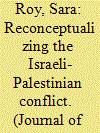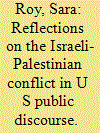|
|
|
Sort Order |
|
|
|
Items / Page
|
|
|
|
|
|
|
| Srl | Item |
| 1 |
ID:
048447


|
|
|
|
|
| Publication |
Stamford, JAI Press, 1999.
|
| Description |
xiii, 203p.
|
| Series |
Research in Middle East economics; v. 3
|
| Standard Number |
0762304103
|
|
|
|
|
|
|
|
|
|
|
|
Copies: C:1/I:0,R:0,Q:0
Circulation
| Accession# | Call# | Current Location | Status | Policy | Location |
| 042617 | 330.956/ROY 042617 | Main | On Shelf | General | |
|
|
|
|
| 2 |
ID:
075551


|
|
|
|
|
| Publication |
London, Pluto Press, 2007.
|
| Description |
xxiii, 379p.pbk
|
| Standard Number |
0745322344
|
|
|
|
|
|
|
|
|
|
|
|
Copies: C:1/I:0,R:0,Q:0
Circulation
| Accession# | Call# | Current Location | Status | Policy | Location |
| 052053 | 956.04/ROY 052053 | Main | On Shelf | General | |
|
|
|
|
| 3 |
ID:
108757


|
|
|
|
|
| Publication |
Princeton, Princeton University Press, 2011.
|
| Description |
xvii, 319p.
|
| Standard Number |
9780691124483
|
|
|
|
|
|
|
|
|
|
|
|
Copies: C:1/I:0,R:0,Q:0
Circulation
| Accession# | Call# | Current Location | Status | Policy | Location |
| 056351 | 324.2569503820931/ROY 056351 | Main | On Shelf | General | |
|
|
|
|
| 4 |
ID:
146069


|
|
|
| 5 |
ID:
048637


|
|
|
|
|
| Publication |
Abu Dhabi, Emirates Center for Strategic Studies and Research, 1998.
|
| Description |
82p.
|
| Series |
Emirates Occasional papers; 24
|
|
|
|
|
|
|
|
|
|
|
|
Copies: C:2/I:0,R:0,Q:0
Circulation
| Accession# | Call# | Current Location | Status | Policy | Location |
| 040351 | 330.95694/ROY 040351 | Main | On Shelf | General | |
| D40351 | 330.95694/ROY D40351 | Main | On Shelf | General | |
|
|
|
|
| 6 |
ID:
050074


|
|
|
| 7 |
ID:
066549


|
|
|
| 8 |
ID:
121452


|
|
|
|
|
| Publication |
2012.
|
| Summary/Abstract |
In the near 20 years since the Oslo peace process began, Palestinians have suffered losses-socially, economically and politically-arguably not seen since 1948. This altered reality has, in recent years, been shaped by critical paradigm shifts in the way the Israeli-Palestinian conflict is understood and addressed. These shifts, particularly with regard to international acceptance of Palestine's territorial fragmentation, the imperative of ending Israel's occupation, the de facto annexation of West Bank lands to Israel, and the transformation of Palestinians into a humanitarian issue-have redefined the way the world views the conflict, diminishing the possibility of a political resolution.
|
|
|
|
|
|
|
|
|
|
|
|
|
|
|
|
| 9 |
ID:
096415


|
|
|
|
|
| Publication |
2010.
|
| Summary/Abstract |
This essay argues that the climate of intimidation and fear surrounding a more critical discussion of the Israeli-Palestinian conflict in the United States has begun to change. Despite the obstacles that still remain, a counterdiscourse challenging dominant conceptualizations and understandings of the conflict, particularly Israel's role, has not only emerged but also gained growing legitimacy and weight. These changes can be found in academia (at all levels of the educational hierarchy), civil society, and policy circles. Some of the most dramatic changes have occurred within the U.S. Jewish community in which an oppositional movement-in part, generational-has grown increasingly strong and well organized, ending any notion of a Jewish consensus on Israel.
|
|
|
|
|
|
|
|
|
|
|
|
|
|
|
|
| 10 |
ID:
136600


|
|
|
|
|
| Summary/Abstract |
Below, we present a letter by Dr. Sara Roy in response to a statement by Holocaust survivor and Nobel Peace laureate Elie Wiesel. Roy’s letter, which appeared on the CounterPunch website on 9 September 2014, is a denunciation of Wiesel’s implicit allegation that Palestinian “terrorists,” rather than Israeli soldiers, are responsible for the fate of Gaza’s children.
Wiesel’s statement appeared under the photo of a Hamas fighter with the headline “Jews rejected child sacrifice 3,500 years ago. Now it’s Hamas’ turn.” It was featured in an advertisement run by major English-language newspapers in late July and early August 2014, including the New York Times, the Wall Street Journal, the Washington Post, and the Guardian. (The London Times refused to run the ad, saying it would have caused “concern amongst a significant number of Times readers.”) The ad was produced, paid for, and circulated by the New Jersey–based This World: The Values Network, a not-for-profit organization led by Rabbi Shmuley Boteach.
|
|
|
|
|
|
|
|
|
|
|
|
|
|
|
|
| 11 |
ID:
142160


|
|
|
|
|
| Summary/Abstract |
n the spring of 2012, I came to Washington for two specific meetings. One was with Senator John Kerry, at the time the chairman of the Senate Foreign Relations Committee. Senator Kerry had also chaired the Senate committee that held my confirmation hearing, and he'd come to Saudi Arabia to visit me on a number of occasions, so I knew him well. That night, I had a private dinner with General David Petraeus, who at the time was head of the CIA. When I was ambassador in Saudi, he was coalition commander in Iraq, and we worked on a number of programs together. My message to both of them was simple and straightforward. Number one, Syria was of critical strategic importance to the United States, and if we wanted to be serious about pushing back the spread of Iranian influence in the region, Syria was key. If we wanted to send a message to Hezbollah, it was through Syria. Finally, from a moral standpoint, this was a true people's revolution. These were common people coming out onto the streets, peacefully protesting, initially, against a repressive regime. If we were going to support any revolution in the Middle East, this should be the one we stand behind.
|
|
|
|
|
|
|
|
|
|
|
|
|
|
|
|
|
|
|
|
|